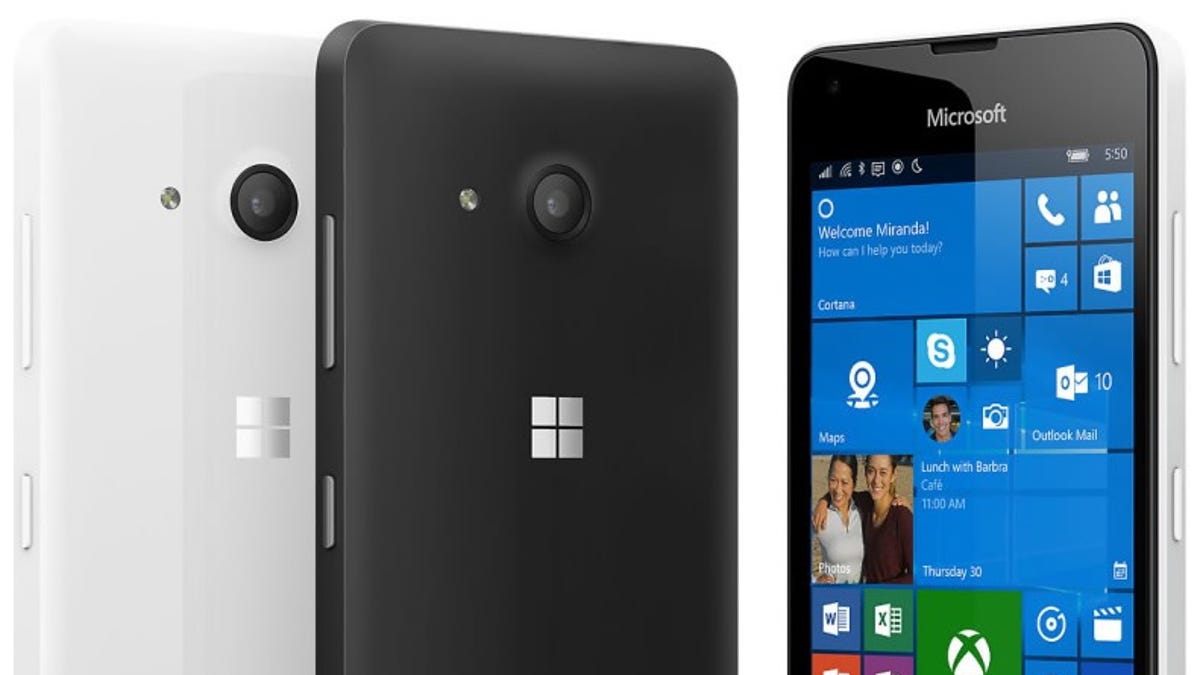Windows 10 Mobile gets its final death sentence
No more new features, no more hardware -- the head of Microsoft's Windows division says Windows 10 Mobile will no longer be "a focus" for the company.

Microsoft's Lumia 550 was one of the first phones equipped with Windows 10 Mobile. But now, the OS is on the way out.
Bill Gates has given up his Windows phone. HP is pulling production of its flagship Windows handset. Now Microsoft has finally seen the writing on the wall -- there aren't enough people using Windows 10 Mobile or enough apps to make it viable.
Corporate vice president of Windows 10 and head of Microsoft's "PC-Tablet-Phone" division, Joe Belfiore, said on Twitter Sunday that Microsoft will continue to support Windows 10 Mobile with bug fixes and security updates, but new features and hardware are no longer front and centre.
Of course we'll continue to support the platform.. bug fixes, security updates, etc. But building new features/hw aren't the focus. 😟 https://t.co/0CH9TZdIFu
— Joe Belfiore (@joebelfiore) October 8, 2017
Microsoft is no upstart in the mobile space. It produced versions of its software for mobile devices for more than 20 years -- starting with Windows CE for personal digital assistants in 1996, and later with Windows Mobile in 2000.
But the ecosystem has struggled since the launch of Apple's iOS in 2007 and Google's Android operating system in 2008. According to the most recent sales figures from Kantar Worldpanel, Windows phones account for just 1.3 percent of the market in the US, bested only by BlackBerry at 0.3 percent. Compare that with Android's 64 percent share of new phone sales and 34 percent for iOS (figures that are closely matched in the UK and Australia).
Microsoft has attempted to leverage its legacy in the PC space to push further into mobile -- Windows 10 Mobile was billed as the "everywhere OS" that would let users shift seamlessly between desktop, tablet and mobile.
But users have long complained the lack of apps on Windows Mobile devices is a deal breaker.
While Belfiore said Microsoft has tried "very hard" to provide incentives for app developers to get apps onto Windows Mobile, the "volume of users is too low for most companies to invest" in the ecosystem.
We have tried VERY HARD to incent app devs. Paid money.. wrote apps 4 them.. but volume of users is too low for most companies to invest. ☹️ https://t.co/ePsySxR3LB
— Joe Belfiore (@joebelfiore) October 8, 2017
But don't discount a comeback. On the same day Belfiore poured 140 characters out for Windows Mobile, BlackBerry -- the company with less than 1 percent market share in the US -- unveiled a brand new all-touch smartphone, the BlackBerry Motion.
In the world of mobile phones, it seems big brands are never truly gone for long. And if nothing else, we'll always have SwiftKey.
Tech Enabled: CNET chronicles tech's role in providing new kinds of accessibility.
Batteries Not Included: The CNET team reminds us why tech is cool.

